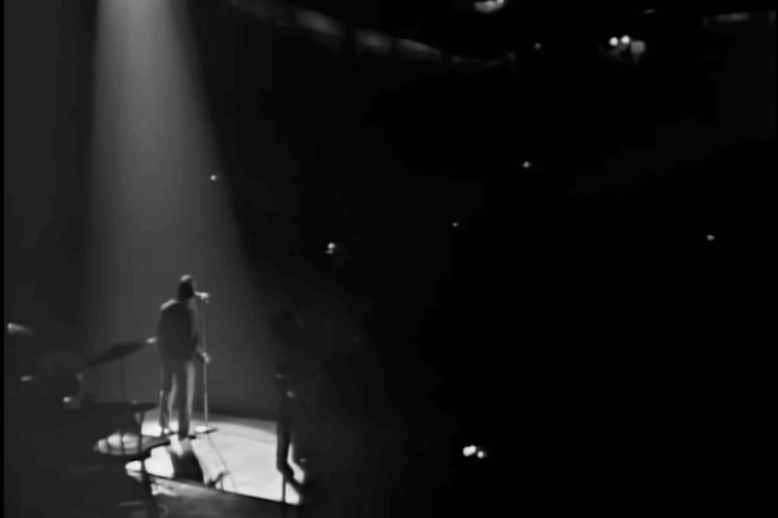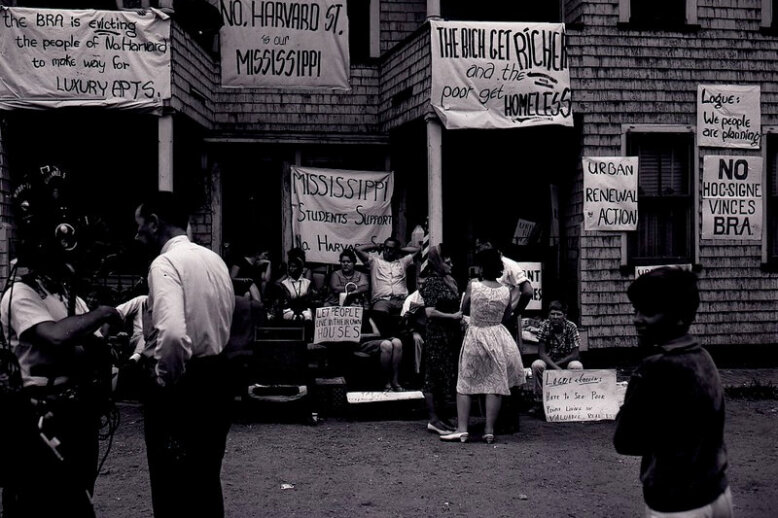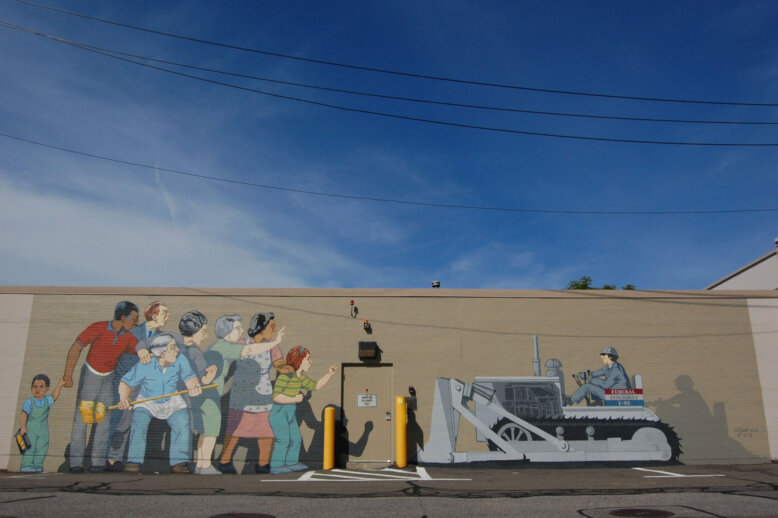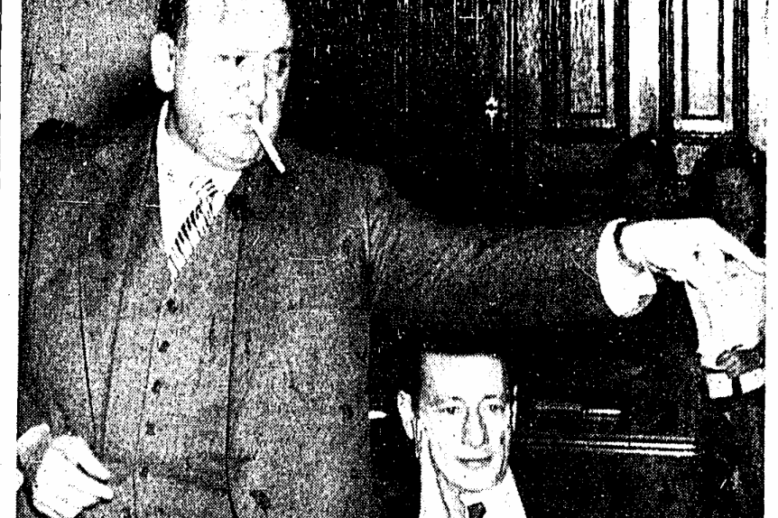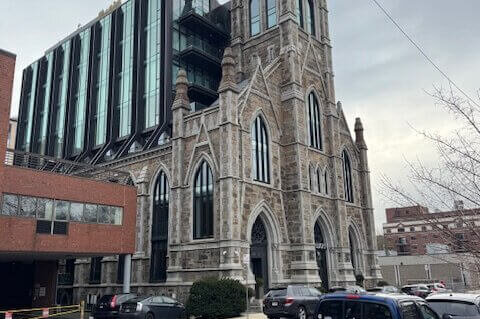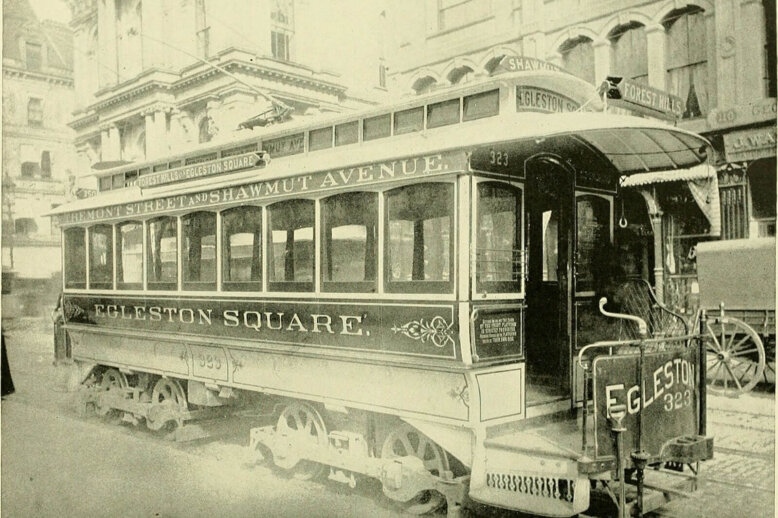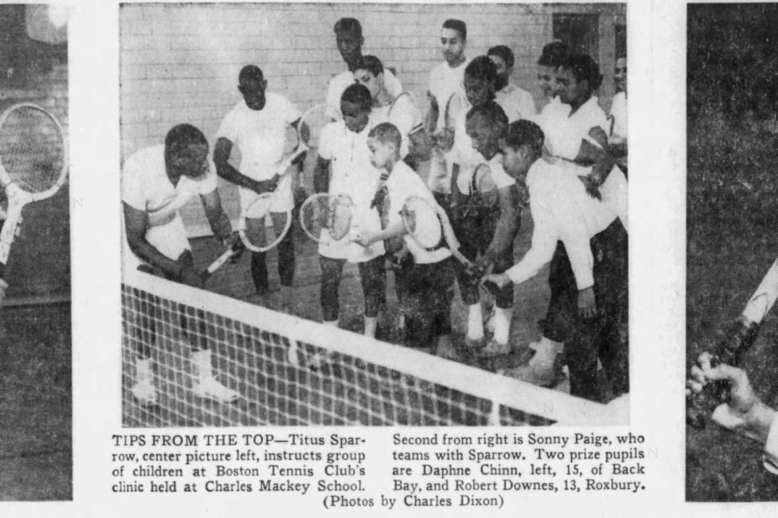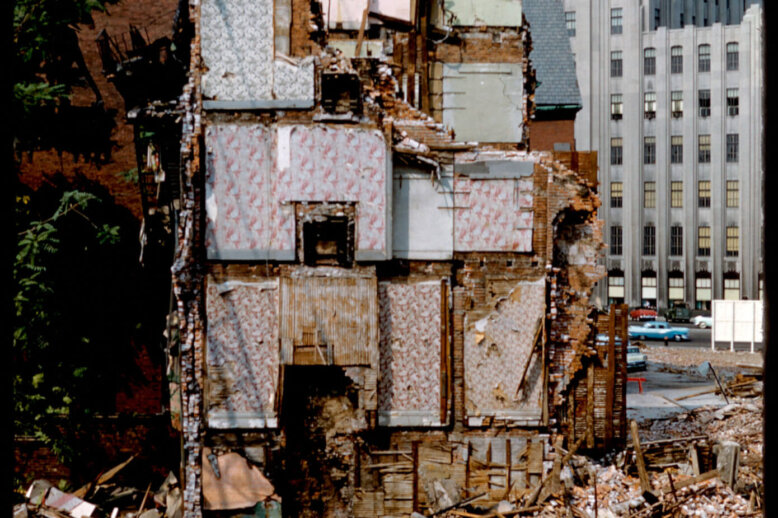Era: Modern (~1995-present)
The West End today
Soothing the City with Soul: How James Brown Saved Boston While the rest of the country erupted in grief fueled riots in the days after the death of Martin Luther King Jr., Boston was quiet. The “Number One Soul Brother” James Brown had an almost sold out performance scheduled in the Boston Garden. Should it…
When Barry’s Corner Said, ‘To Hell With Urban Renewal!’ After learning from the example of the West End, one of the neighborhoods who fought back against urban renewal was the tiny area of Lower Allston called Barry’s Corner. A beloved working class area, Barry’s Corner residents did their best to push back against the specter…
The Inner Belt: The Highway Massachusetts Didn’t Build Modern Boston has been shaped by its finished highway projects: the Central Artery, the Southeast Expressway, the Big Dig. But just as key to the character of the city today is a highway that was NOT built: the Inner Belt. This article explores how people fought to…
Kane Simonian The distinct name of Kane Simonian belonged to the man who either controlled or influenced Boston’s urban development for over 40 years. He managed the city’s first federally funded urban renewal projects under the Boston Housing Authority. In 1957, he became the first director of the Boston Redevelopment Authority. Simonian’s long, tumultuous, and…
Repurposed Churches and Schools in the South EndA case study on housing in a changing neighborhood As neighborhood demographics have changed in the South End, public buildings and the communities they once served have relocated. Those churches and schools have mostly been preserved in the form of condominiums. However, these units are often high priced…
How The West End Meets the World: Mass Transit that Shapes the Neighborhood Tens of thousands of people traverse the West End neighborhood every day without even knowing it. The West End has been home to rail links connecting Boston with North Shore communities and the rest of northern New England for over a century.…
Titus Sparrow: The Tennis Ace who Brought Courts Back to Boston Renowned tennis player and Boston native, Titus Sparrow (1908-1974), recognized that a city owed its residents more than just roads and bridges. During a long career in which he taught hundreds of young tennis players, Sparrow advocated for public tennis courts for all neighborhoods.…
Edmund L. Mitchell: Photographer of a Changing Boston With over 5,700 photographs, the Edmund L. Mitchell Collection, now housed at the Boston Public Library, offers a snapshot of Boston and the West End in a period of transition. As an amateur photographer, Mitchell nonetheless captured the city as it became something new. Edmund Lombard Mitchell…


